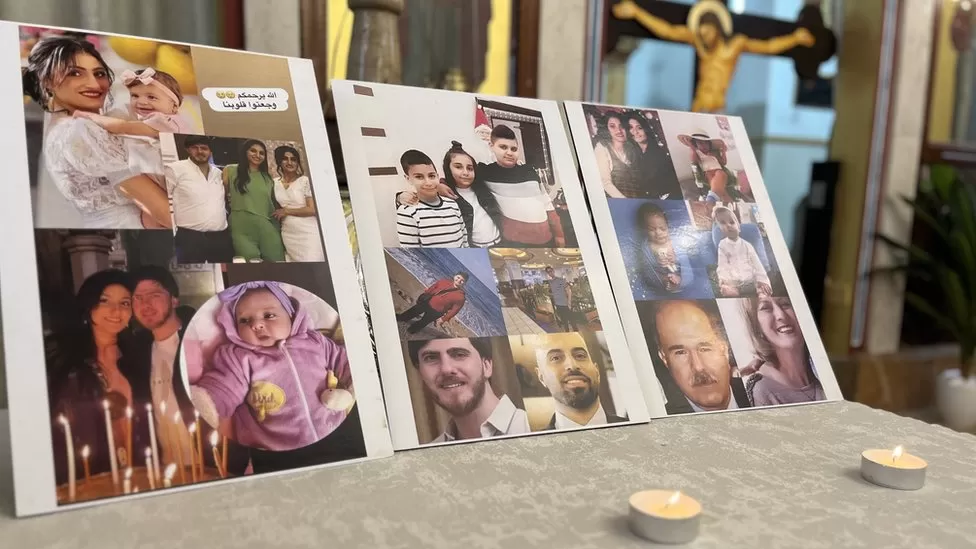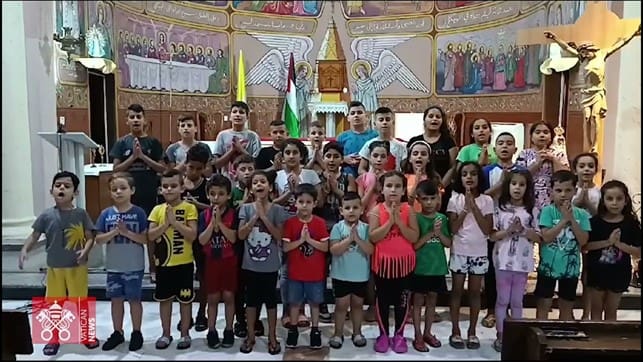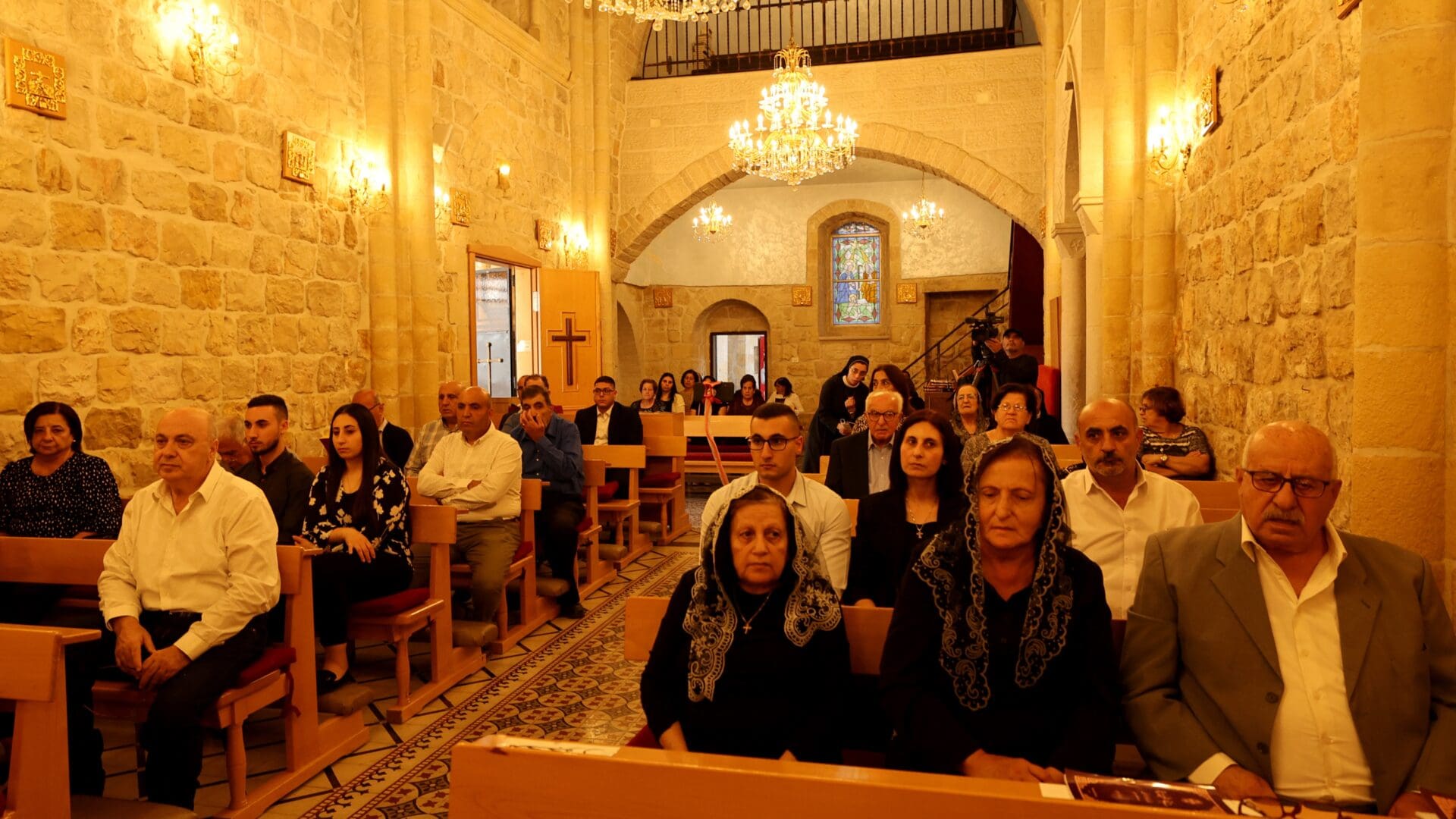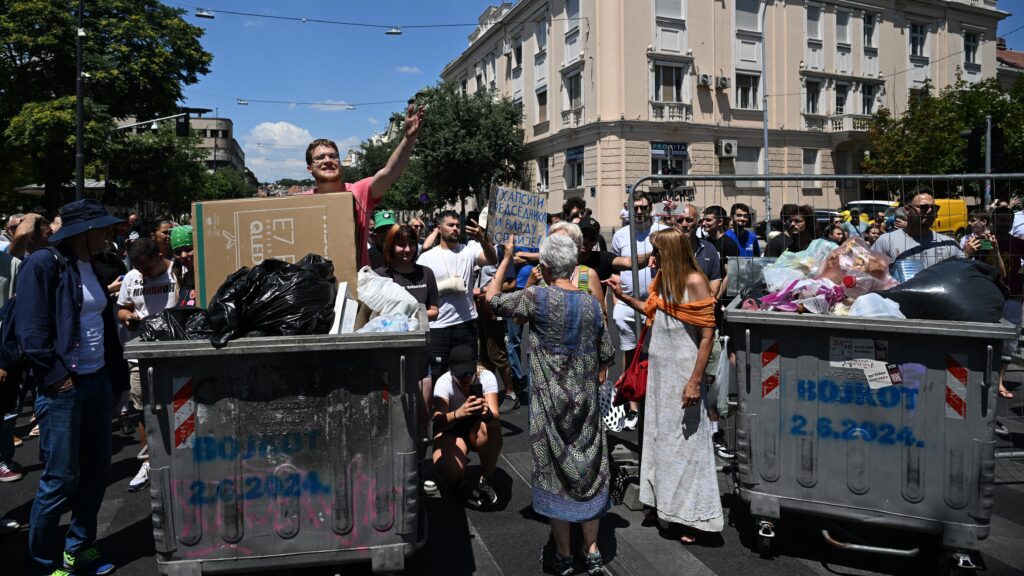Following Hungarian Prime Minister Viktor Orbán’s statement that Hungary cannot hold sympathy protest in support of terrorist organisations, police banned another pro-Palestinian demonstration, reported Magyar Nemzet. This was appealed by the Hungarian Civil Liberties Union (HCLU, Társaság a Szabadságjogokért) to the Hungarian Constitutional Court because, according to HCLU’s Szabolcs Hegyi, ‘in the tense global political situation, there may be security risks involved in such a demonstration, but this is not in itself a reason to ban it’.
As reported also by Hungarian Conservative, certain protests have become violent in which Jews have been targeted since the Hamas–Israel War began. Such was the case of the sixty-nine-year-old Jewish man Paul Kessler who died from blunt force trauma to the head on 5 November in Thousand Oaks, California. He was attending a pro-Israel rally.
Naturally, Jews have rightfully become concerned about their own personal safety
with the reports of the rise of antisemitism after Hamas terrorist attacks on 7 October. Yet what about the innocent Palestinian civilians who are also being targeted?
On 14 October, a six-year-old Palestinian boy was fatally stabbed twenty-six times in his suburban home in Chicago, Illinois in a hate crime linked to the ongoing conflict between Israel and Hamas; his mother, thirty-two-year-old Wadea Al-Fayoume, who was stabbed a dozen times, survived. The perpetrator was their landlord and a US Air Force veteran, seventy-one-year-old Joseph Czuba. His reason was because they were both Muslims, according to the Will County Sheriff’s Office.
Thus far over eleven thousand Palestinians—almost half of them children— have been killed, by the bombardment of the Israeli Defence Force (IDF); approximately 70 per cent of the 2.3 million people who live in the Gaza Strip have been displaced. Among those are our Christian brethren who face extinction amidst the Israeli-Hamas war.
Diana Tarazi, a thirty-eight-year-old Palestinian Christian, her husband, and three children huddled alongside fellow churchgoers and Muslim neighbours and friends, lulling their children to an exhausted sleep amid the sounds of bombing, muttering soft words of encouragement to each other.
‘Together, we try to get through the war until it ends—and we survive it’, said Tarazi. Yet their sense of safety was shattered on 19 October, when the IDF bombed the nearby fifth-century Church of St Porphyrius, Gaza’s oldest, killing at least eighteen people. The IDF said that the church was not the target of the attack. However, as stated by Tarazi:
‘The missile fell directly on it. We cannot believe that the church was not their aim.’

Stories, such as those of Janet Maher, who has not had a shower for weeks, are devastating. She feeds her three children one meal a day, often no more than bread and cheese. Her cousin perished from damage caused by the aforementioned Israeli missile, shielding his seven- and five-year-old boys from the collapsing wall at St Porphyrius Church. The two families had been sheltering together, and the younger boy was friends with her son in kindergarten.
Who are the Christians of Gaza?
The Christians of Gaza date back to biblical times. After the crucifixion and resurrection of Jesus Christ, Philip the Apostle travelled down the desert road from Jerusalem to Gaza to spread the gospel message. (Acts 8, 26)
The number of Christians in Gaza has dwindled in recent years.
Today there are only approximately one thousand, a sharp drop from the three-thousand registered in 2007, when Hamas assumed complete control over the enclave—Palestine’s Christians, totalling fifty-thousand across the occupied territories, are sometimes referred to as ‘living stones’, a metaphor first invoked by St Peter, the Prince of the Apostles, to describe the role of believers in building the spiritual house of God.
According to Kamel Ayyad, a spokesperson for the Church of St Porphyrius, the majority of the Christian population is from Gaza itself. The rest fled here after the creation of the state of Israel, which displaced about 750,000 Palestinians—an event they refer to as the Nakba, or ‘catastrophe’.
The Hamas regime, which, according to the Times of Israel, was propped up by Israeli Prime Minister Benjamin Netanyahu for years in order to divide the Palestinian authorities from the Gaza Strip and the West Bank, brought an Israel-led land, air and sea blockade, accelerating the flight of Christians from the poverty-stricken enclave.
‘It’s become very difficult for people to live here’, says Ayyad. ‘Many of the Christians left for the West Bank, for America, Canada or the Arab world, seeking better education and health’.
While most of Gaza’s Christians belong to the Greek Orthodox faith, smaller numbers worship at the Catholic Holy Family Church and the Gaza Baptist Church. The former recently released a video of parish children praying, the din of bombs in the background.

Pastor Mitri Raheb, an Evangelical Lutheran and founder of Dar al-Kalima University in Bethlehem, said it was conceivable that the current conflict would spell the end of Christianity’s long history in the Gaza Strip:
‘This community is under threat of extinction. I’m not sure if they will survive the Israeli bombing, and even if they survive, I think many of them will want to emigrate. We know that within this generation, Christianity will cease to exist in Gaza.’
Discrimination against Christians in the Holy Land
Just as Muslims have been denied permits to visit Jerusalem’s Al-Aqsa Mosque, Christians have also been unable to visit sacred places, such as Bethlehem’s Church of the Nativity, revered as the birthplace of Jesus.
Indeed, the head of the Roman Catholic church in the Holy Land, Cardinal Pierbattista Pizzaballa has warned in a July interview that Netanyahu’s government has made life worse for Christians in the birthplace of Christianity.
The region’s two-thousand-year-old Christian community has come under increasing attack, with the most right-wing government in Israel’s history emboldening extremists who have harassed clergy and vandalized religious property at a quickening pace.
The Israeli government, according to Pizzaballa, has empowered Israeli settlers seeking to entrench Jewish control of the occupied West Bank and East Jerusalem, alarming church leaders who see such efforts—including government plans to create a national park on the Mount of Olives—as a threat to the Christian presence in the holy city of Jerusalem. Palestinians claim East Jerusalem as the capital of their hoped-for state.
There are approximately fifteen-thousand Christians in Jerusalem today, the majority of them Palestinians. At one time, they were twenty-seven-thousand in number, prior to the hardships that followed the Six Day War of 1967, which spurred many in the traditionally prosperous group to emigrate.
Hostility by fundamentalist Israelis towards Jerusalem’s Christian community is nothing new. Priests of all denominations describe being spat at for years. The targeting of Christian symbols, especially the cross, with harassers often calling Christians ‘pagans’ or ‘idol worshippers’ has also been part of the persecution. Since 2005, Christian celebrations around Holy Week, particularly Holy Fire Saturday, have brought military barricades and harsh treatment from soldiers and settlers alike, with the number of worshippers allowed inside the Church of the Holy Sepulchre drastically limited, from as many as eleven-thousand historically during the Holy Fire ceremony to now just under two-thousand since last year, with authorities citing safety concerns.
In a 2021 joint statement, the ‘Patriarchs and Heads of Churches in Jerusalem’ warned that radical Jewish groups were working to drive Christians out of Jerusalem.
This was met with anger by the Foreign Ministry headed by Yair Lapid, and by President Isaac Herzog. They said such statements were ‘baseless, and distort the reality of the Christian community in Israel.’
***
A Note to the Reader: The indiscriminate attack on 7 October that killed approximately twelve-hundred innocent Israeli citizens cannot go unpunished. Yet there are rules of war that need to be respected. While I fully support the total eradication of Hamas, the generals of the IDF need to find another alternative to the bombing that continues to slaughter innocent civilians. As French President Emmanuel Macron said:
‘De facto — today, civilians are bombed — de facto. These babies, these ladies, these old people are bombed and killed. So there is no reason for that and no legitimacy. So we do urge Israel to stop.’
Let us pray, as do the children of the Catholic Holy Family Church in Gaza, that the chaos comes to a swift end. History will judge the rest.
The views expressed by our guest authors are theirs and do not necessarily represent the views of Hungarian Conservative.








